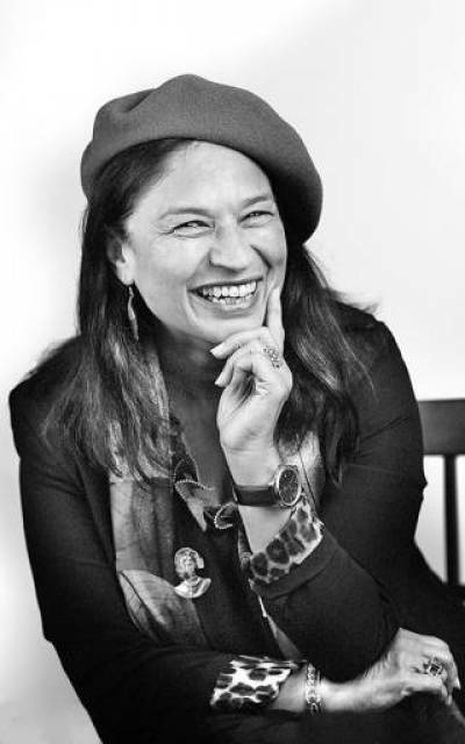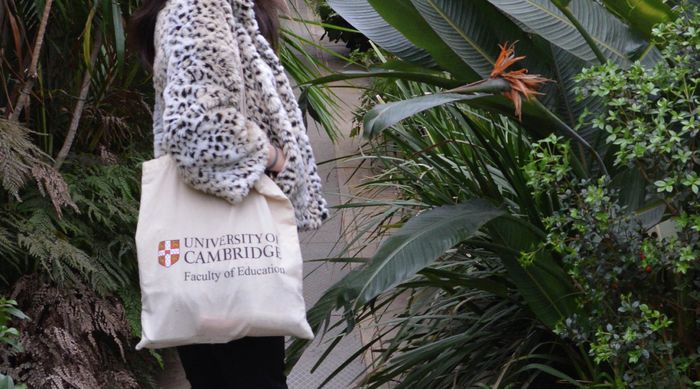‘We are in the white heat of change’: an interview with Heidi Safia Mirza
Juliette Guéron-Gabrielle speaks to UCL professor Heidi Safia Mirza about the power of young people, the revolutionary potential of queering society and the road to decolonizing institutions.

Fist held high, Professor Heidi Safia Mirza ended our zoom call by mandating young people to “smash the patriarchy – it is still here!” Even over Zoom, her enthusiasm and smile were infectious.
UCL professor Mirza became known for her landmark study of Caribbean girls in secondary education called Young, Female and Black. To conduct her study, she went back to her old school. There, she theorized the “backdoor entry” young Caribbean women used to get into university despite being awarded insufficient grades to enter higher education the traditional way.
“I found that, when they arrived at university, Caribeean girls were often older – because they had to use the backdoor entries”.
Young, Female and Black was inspired by her own experience of arriving from the Caribbean at sixteen and going to school in Brixton, where she encountered “very overt racism”. “The book is about how the girls navigated the racism in the system – the awarding gap.” Mirza found they followed college courses or vocational training to enter university, regardless of this “awarding gap”. “I found that, when they arrived at university, they were often older – because they had to use the backdoor entries”.
Mirza linked the young women’s will to achieve higher education against the odds to a “resilience” passed down from the time of slavery, where “women were not allowed to have families”. “They were independent women, single mothers”. As such, Brixton Caribbean girls at the time “saw themselves as career women” whereas “white girls saw themselves as set to get married”.
Mirza – that I interviewed on Zoom from the Cambridge Union’s chamber - also touched on the meaning of decolonizing higher education and places like the Cambridge Union. “Institutions are not neutral spaces.”, she insisted. “Even the way the seats are laid out [in the Union]… it is not neutral. It belongs to the period of the Enlightenment. A time where people sat in staggered rows on leather seats to look at the object they were studying. Decolonizing is changing those spaces”.
Mirza, in her earlier speech at the Cambridge Union’s Race debate, had highlighted the need for the Union to become a more inclusive space. “The skills the Union values are not neutral skills. Crushing your adversary with words. It is the survival of the fittest. It is skills taught at private English schools. The Union is structured around a very masculine set of rules.”
Mirza is confident the ‘decolonize’ movement is going to succeed, and institutions are broadly going to become more inclusive with time. She links this to young people. When I tell her I hope to see this politically active united front of young people soon, she tells me it already exists. “Young people… They are mad as hell. They did it. They pulled down the statues.”
Mirza spoke with confidence. “Young people are an irresistible force. Just sheer numbers, intelligence… you are the most highly educated ever on the planet. You have social media, you can talk to each other across walls… The government is scared of young people. Who knows, there might be a rebellion!”.
Mirza’s fervent spirit was communicative. Our conversation felt like a small escape from months of dreary COVID reports and various lockdowns.
“The more fragmented and neoliberal our world gets, the more we hold out to our specific identities”, Mirza stated. But she thinks movements such as Black Lives Matter or the decolonize movement can bridge such divisions.

The importance of studying education
On the present time and the rise of virtual interaction, she said it “can make a sense of reality difficult”. And the “name and shaming” have to be “sorted out”. But overall, she believes social media has the power to organize activism. It offers a fresh tool of resistance against established forms of power.
In our conversation, Mirza spoke extensively about feminism. Her book Black, British and Feminism was one of the first academic publications on intersectionality in the UK. She says that when she began talking about black feminism in the 1970s, “I was talking in a cold dark room. Today, this is no longer the case”.
Mirza described sexism and heteropatriarchy as “chameleon” like. “They change their form, but they don’t go.” Traditional patterns of interaction adapt to modern innovations like social media, or to new situations like lockdown: “social media is a new form of communication. But is still very sexist, very much based on ‘oh, show me your body’, or ‘are you up for grabs’”.
“Queering society is currently the most powerful threat to the heteropatriarchy.”
According to Mirza, today’s feminist movement needs to address “the same problems I was seeing 40 years ago”. Namely, achieving careers as well as domestic inequality. “I read recently that women are going to become the main breadwinners in the family in the UK. Things are changing. Women are going to be a force to be reckoned with”.
She believes the feminist movement is helped by the revolutionary potential of queerness: “queering society is currently the most powerful threat to the heteropatriarchy.” People can escape “binary definitions” of themselves.
Mirza said that on such themes as sexuality, knowledge, or means of communication, “we are in the white heat of change”.
“Keep a diary of the current time”, she advised. “It will be gold dust in thirty years”.
If you have been affected by any of the issues raised in this article, the following information and support is available:
- Mind: A mental health charity providing free online resources.
- Samaritans: A 24-hour mental health helpline.
- The Black, African and Asian Therapy Network: A list of free services available across the UK.
- Ways To Help: A collection of resources, including petitions and bail funds, compiled by Black Lives Matter.
- Learn To Be An Active Bystander: Learn how best to challenge antisocial and discriminatory behaviour on campus.
- CamQuaranchats Podcast: The most recent episode of the CamQuaranchats podcast where students talked about their experiences of institutional racism at Cambridge.
 News / Judge Business School advisor resigns over Epstein and Andrew links18 February 2026
News / Judge Business School advisor resigns over Epstein and Andrew links18 February 2026 News / Gov grants £36m to Cambridge supercomputer17 February 2026
News / Gov grants £36m to Cambridge supercomputer17 February 2026 News / Hundreds of Cambridge academics demand vote on fate of vet course20 February 2026
News / Hundreds of Cambridge academics demand vote on fate of vet course20 February 2026 News / CUCA members attend Reform rally in London20 February 2026
News / CUCA members attend Reform rally in London20 February 2026 News / Union speakers condemn ‘hateful’ Katie Hopkins speech14 February 2026
News / Union speakers condemn ‘hateful’ Katie Hopkins speech14 February 2026









